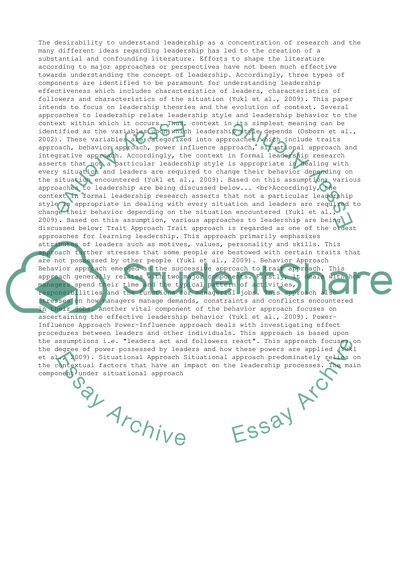Cite this document
(“Leadership Theories: The Evolution of Context Assignment”, n.d.)
Leadership Theories: The Evolution of Context Assignment. Retrieved from https://studentshare.org/management/1490440-leadership-theories-the-evolution-of-context
Leadership Theories: The Evolution of Context Assignment. Retrieved from https://studentshare.org/management/1490440-leadership-theories-the-evolution-of-context
(Leadership Theories: The Evolution of Context Assignment)
Leadership Theories: The Evolution of Context Assignment. https://studentshare.org/management/1490440-leadership-theories-the-evolution-of-context.
Leadership Theories: The Evolution of Context Assignment. https://studentshare.org/management/1490440-leadership-theories-the-evolution-of-context.
“Leadership Theories: The Evolution of Context Assignment”, n.d. https://studentshare.org/management/1490440-leadership-theories-the-evolution-of-context.


